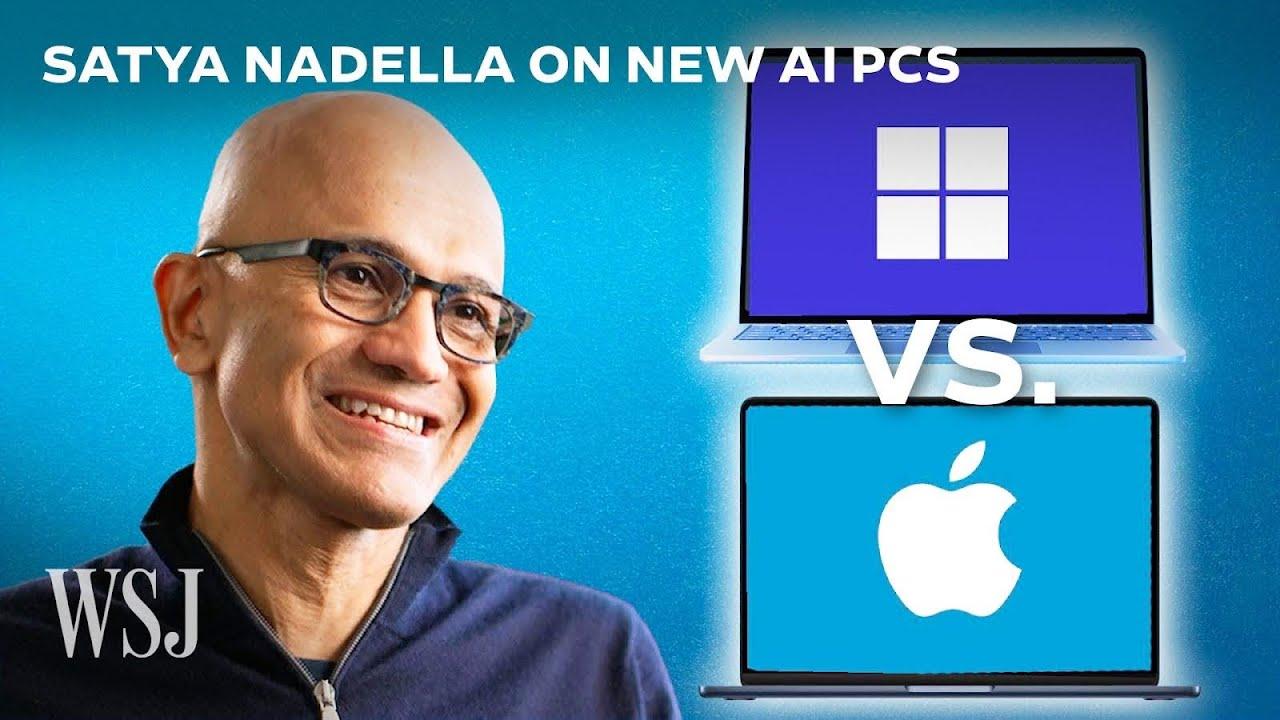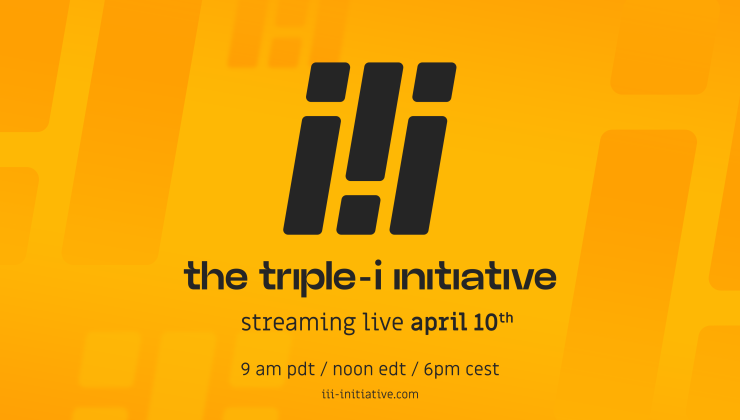This will be preaching to the choir for some readers, as you didn't exactly need another reason not to use Windows right? Microsoft's new Recall AI will take screenshots of everything you do and that sounds truly terrible. Spyware as a service, courtesy of Microsoft's push to stick AI into everything.
You might think I'm being perhaps a bit sensational here or even clickbaity, but no, this is actually genuinely what Recall does. As Microsoft said: "Recall uses Copilot+ PC advanced processing capabilities to take images of your active screen every few seconds", and not only just on their new ARM PCs, they said it will roll out to x86 platforms too via a Windows update.
What's the point? It's to give you a special timeline of your day (it stores up to 3 months worth of what you do), allowing you to go back through it and find things, highlight things, open the original application shown in pictures and eventually open up whatever you were working on in the right application with the right content at the time. Basically, some fancy-pants AI search going over everything you've done.
Microsoft do say the storage is local to your device, and is "protected using data encryption on your device" and even using BitLocker if you're on Windows 11 Pro or an enterprise Windows 11 SKU. Microsoft also claim it doesn't share it anywhere else, at all, no advertisers or Microsoft themselves. But, how far do we trust data being fed into a black-box AI that no one can really see what it's doing huh?
Here's the thing: straight from their own FAQ (scroll down) it notes how "Recall does not perform content moderation" and it will "not hide information such as passwords or financial account numbers". Oh wow, that sure sounds good for your privacy doesn't it. But don't worry it "does not take snapshots of certain kinds of content, including InPrivate web browsing sessions in Microsoft Edge" and "material protected with digital rights management (DRM)" is also protected. We can't have Netflix or Disney getting annoyed with it taking a shot of that movie you watched, nope.
I'm not even what you may call a "privacy nut". I use big-name stuff all the time, my main browser is plain ol' Google Chrome and you get the idea. But still, this is super weird.
What happens if someone else gets access to your device? Lost, stolen, sold (and you forgot to wipe) and so on. If you get hacked, they'll end up seeing everything, it's another major attack point. Yeah great it's stored on your device, but people and companies get broken open all the time, malicious orgs will have a real party with your data. There's plenty of other times people may end up with access to your device to think about, I'm not going to list them all of course.
You can hear Microsoft CEO Satya Nadella speak about it to The Wall Street Journal, skip to 3:23:

Direct Link
No thanks. I'll pass, forever. I never want this. It feels creepy and gross.
The UK's Information Commissioner's Office (ICO) is already looking into it. No doubt others will be too. A privacy nightmare for everyone.
If you wish to try Linux, I can recommend Kubuntu which is my daily-driver.
It's good that you need some "premium" AI accelerator for this to work, but I also wouldn't be surprised if they decided that it has been "so successful" (read: not enough people buy the hardware) that the less fortunate will get access too - using the power of the cloud, of course.
The initial announcement does attempt to market AI surveillance as premium and desirable by restricting it to a new line of devices. MS has a 49% stake in OpenAI (effectively more than that; they are entitled to 75% of future profits until they recoup the 10 billion or so they invested), they have to hype this tripe. Selling surveillance to employers is one way to make money off this; but I'm guessing they'll also try to racket regulated sectors or corps that don't want discovery to bring them legal trouble into paying more to have a guarantee that such material isn't stored.
There's good conversation on Mastodon; for example someone making the point that [baking surveillance into the OS enables domestic abuse](https://infosec.exchange/@munin/112480357946214139). (There's this whole sidebar conversation about Linux; they are correct that a victim of domestic abuse is not at the point where just switching to Linux is a solution, but anyone else who has a broader horizon definitely helps by supporting Linux as a platform that empowers users over monopolies.)
What mcirosoft didn't disclose with their TPM requirement is that breaking bitlocker of the TPM they required at first(hardware based) is so easy that a teacher suggested it as a project in my first year of embedded software engineering. [This is the relevant trick.](https://www.theregister.com/2024/02/07/breaking_bitlocker_pi_pico/).Huh. That's pretty interesting. I guess the real professionals might have a suitcase full of these pogo pin sniffers for common laptop models, ready to disassemble the laptop at a moment's notice.
Doesn't work for fTPM, but that only got allowed when it turned out that gamers with game pcs can be very loud.
My desktop computer from 2017 has fTPM. Let me check if my Dell business laptop from 2022, which came with Windows 11, has fTPM.
<Rebooting>...
Edit:I have no clue. It doesn't tell me in the BIOS whether I have a fTPM, it just has the option to enable Secure Boot.
Last edited by pleasereadthemanual on 23 May 2024 at 2:53 pm UTC
I am going to nuke my only windows 11 install from my laptop.
According to UK Media, the UK Watchdog is now investigating this as a potential security threat.
Trying to explain this to my family is going to be fun. I get labelled a conspiracy theorist enough as it is.I found that the video I linked to earlier ([this one](https://www.youtube.com/watch?v=5WI3QwoiGlM) ) was quite reasonable about it. That's the one I've been showing to the few remaining Windows users I know (all of my family ditched it years ago, thankfully).
In the private domain, just as for states, lawyers, doctors, etc, this poses a very big problem of confidentiality.
We must hope that governments will act urgently and purely and simply ban this type of functionality.
... and that the promised indices won't take up half of the user's boot drive, and perpetually occupy half of their cpu & ram? (which of course they won't because all the processing and storage will be 'in the cloud')
It is prohibited for an employer to spy on its employees in any way. This type of function is therefore formally prohibited in the professional field.Depends where you are. Lots of companies in lots of countries already keep tabs on what employees are doing and looking at.
(which of course they won't because all the processing and storage will be 'in the cloud')If I'm remembering right, they go out of their way to repeatedly point out that it's only stored locally (for now, knowing their track-record). I'm sure that pushing the benefits of processing and storing it on their computers will be the next step.
Last edited by Pengling on 23 May 2024 at 3:55 pm UTC
Also, Nadela said it's your computer.Yet Windows dropped the term "My Computer" some time ago! They replaced it with "This Computer", which was obviously to lay the groundwork for control being taken away from users.
Windows and owned PC? By whom? By Microsoft?I believe that's the idea, yeah. Pretty sure you already don't own your PC if you use Windows on it, though admittedly having not used it in 20 years, and only having checked things for others who needed the info at various points, I'm not up-to-date on their current terms.
Bummer ...
This is Nadella's doing though, Bummer hasn't been the CEO since 2014.
The sad thing is that close to 100% of all Windows users won't even realize that this "feature" is there. They will never even realize that they're getting permanently watched. And knowing MS, you will need a registry hack to disable it, or at least click through three layers of settings in places you wouldn't look for them.
I was also thinking "Why? Imagining for a second that they're not lying through their teeth about harvesting your information with this, what on earth is the point for them of doing this?" Then I got to
But don't worry it "does not take snapshots of certain kinds of content, including InPrivate web browsing sessions in Microsoft Edge"Ahhh, I see! It's a maneuver to force you to use Microsoft Edge instead of Chrome or Firefox. I'm sure there are other reasons, but that's one part I bet.
I'm absolutely 100% sure people will keep using Windows regardless, like everybody keeps using Chrome, despite all we know about Google and how they spy on their users ¯\_(ツ)_/¯Well, maybe, but somehow this feels more personal. I mean, I'm not going to predict that Windows market share will drop to 5% tomorrow as the news hits or anything, but I wouldn't be surprised if this caused a trickle of people leaving.
What mcirosoft didn't disclose with their TPM requirement is that breaking bitlocker of the TPM they required at first(hardware based) is so easy that a teacher suggested it as a project in my first year of embedded software engineering. [This is the relevant trick.](https://www.theregister.com/2024/02/07/breaking_bitlocker_pi_pico/).Huh. That's pretty interesting. I guess the real professionals might have a suitcase full of these pogo pin sniffers for common laptop models, ready to disassemble the laptop at a moment's notice.
Doesn't work for fTPM, but that only got allowed when it turned out that gamers with game pcs can be very loud.
My desktop computer from 2017 has fTPM. Let me check if my Dell business laptop from 2022, which came with Windows 11, has fTPM.
<Rebooting>...
Edit:I have no clue. It doesn't tell me in the BIOS whether I have a fTPM, it just has the option to enable Secure Boot.
If you can't enable/disable your TPM in the BIOS you've no fTPM. If you can you do.(f stands for firmware)
EDIT:
This probably means you've hardware TPM for such a modern device.
Rant:
For some reason the advised practice in the security community is that for drm like activities dedicated hardware is most effective, but as far as I've encountered so far this is complete and utter bull.
Nintendo did and does it and failed.
Intel doesn't and succeeds(Intel ME)
By binding it to existing devices changing it is more intermingled with stuff the attacker doesn't want to touch.
Yes giving it more permissions helps, but if you integrate it in the firmware of something important it's harder to take away.
Edit:
Looked it up:
You've both, but the hardware TPM is probably the used one.
Bussiness laptop had TPM before consumer ones, because physical attacks are much more dangerous for owners of laptops who aren't also the user, such as businesses.
I assumed your laptop was new when you got it.
Last edited by LoudTechie on 23 May 2024 at 7:08 pm UTC











 How to set, change and reset your SteamOS / Steam Deck desktop sudo password
How to set, change and reset your SteamOS / Steam Deck desktop sudo password How to set up Decky Loader on Steam Deck / SteamOS for easy plugins
How to set up Decky Loader on Steam Deck / SteamOS for easy plugins
See more from me